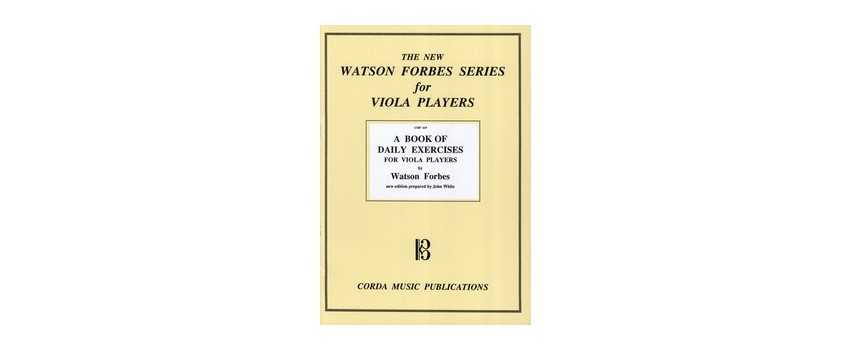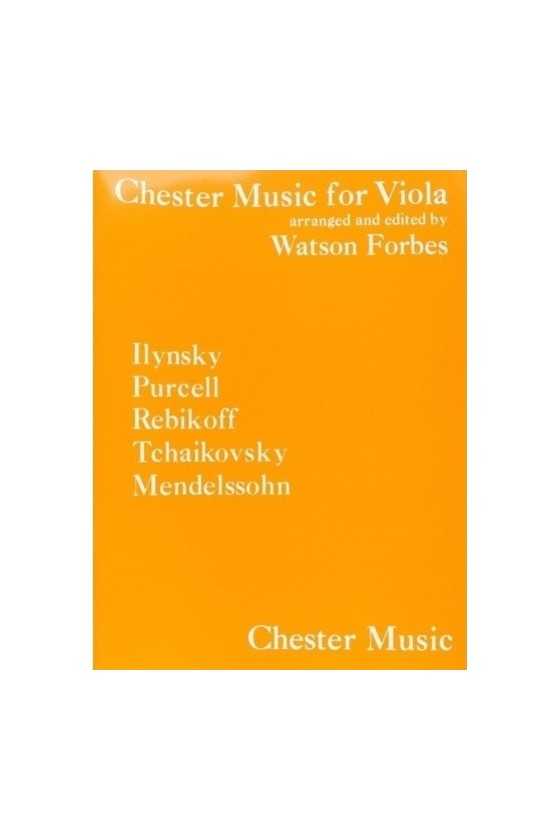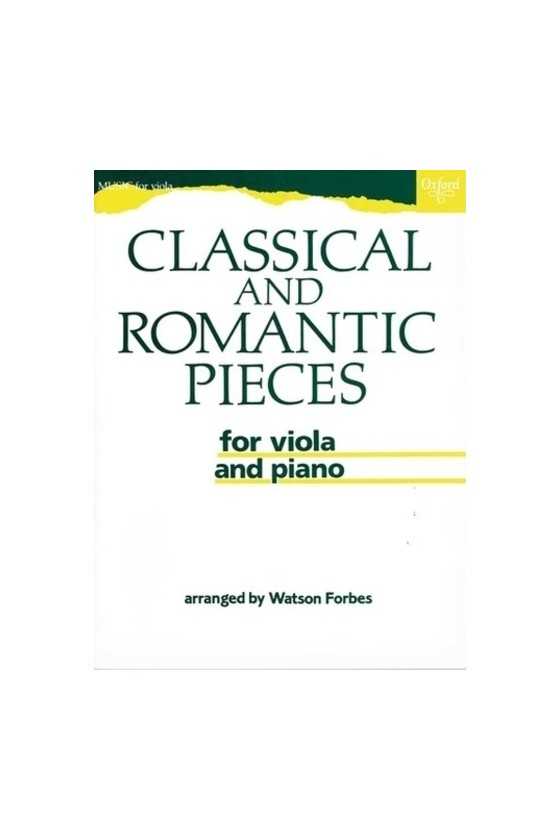Forbes, Watson
Watson Forbes (16 November 1909 – 25 June 1997) was a violist and classical music arranger from Scotland. He was Head of Music for BBC Scotland from 1964 to 1974. Watson Forbes was born in a jeweler's store in St Andrews, where his parents ran a business. His father, a Scottish country fiddler, taught him how to play the violin. He was transferred to the Royal Academy of Music in London at 16, where he studied violin, viola, and composition. Theodore Holland, his composing professor at the RAM, created a Suite for Forbes. At the RAM, Forbes had several violin teachers. Sydney Robjohns was his first teacher, followed by Edith Knocker, Paul Beard, and ultimately Marjorie Hayward. He was a member of the Academy's first orchestra and shared the first violin desk with Vivian Dunn. With David Carl Taylor on the second violin, Gwynne Edwards on viola, and David Ffrancon Thomas on cello, he was a member of the RAM's premier string quartet. In 1929 and 1930, the foursome received Sir Edward Cooper and RAM Club Prizes. They did some outside work, including a show at 11 Downing Street. Herbert Withers, the quartet's instructor, urged Forbes to take up the viola. For both musical and practical reasons, he eventually focused on the viola. In 1930, he traveled to Pisek, Czechoslovakia, to study with Otakar evk, whose complex method of exercises revolutionized string playing; he believed he had gotten a lot out of the experience.
Forbes received tuition from Raymond Jeremy and Albert Sammons after returning to England. His career was put in motion when he was invited to join the Stratton Quartet. Elgar's favored quartet was the Stratton, and their recordings of his String Quartet and Piano Quintet in 1933 were the music he chose to listen to on his deathbed. Forbes stayed with Stratton for the rest of the company's life. Forbes was a co-leader of the London Symphony Orchestra at the outbreak of WWII. Still, from 1940 onwards, he joined the RAF Symphony Orchestra, which included several small groups of chamber musicians. In a piano quintet with Denis Matthews, Frederick Grinke, and James Whitehead, he toured the United Kingdom. He also made numerous appearances at Myra Hess's National Gallery performances. After the war, he continued with the Stratton Quartet, which had been renamed the Aeolian Quartet after George Stratton's departure. He has performed as a soloist and with other groups. In Cambridge, for example, he premiered the Viola Sonata by his identical contemporary Robin Orr in 1947. In 1950, he was named a Fellow of the Royal Academy of Music (FRAM). In 1954, he was appointed professor of viola and chamber music at the Royal Academy of Music in London. On September 14, 1956, he made his Proms solo debut, performing the world premiere of John Greenwood's Viola Concerto. He frequently performed concerts on the Royal Academy's rare Stradivarius Archinto viola (1696). Forbes came to Glasgow in 1964 to work as the Head of Music for BBC Scotland. There, he saved and extended the BBC Scottish Symphony Orchestra, which was in jeopardy at the time, and promoted Scottish musical culture, mainly traditional Scottish music, through a fiddle competition in Perth, which Yehudi Menuhin was the principal adjudicator for.
Forbes worked on one of his most enduring legacies as a musician throughout his working life, but notably in retirement, on an enormous series of arrangements (including pieces by Rameau and Bach) to expand the viola repertoire and a series of pedagogical collections for other instruments. He also recorded solo recordings with the composer at the keyboard, including Arthur Bliss' Viola Sonata and Alan Richardson's Sussex Lullaby. He was awarded the Cobbett Memorial Prize for services to chamber music in 1972 and was made an honorary Doctor of Music by the University of Glasgow in 1970.



